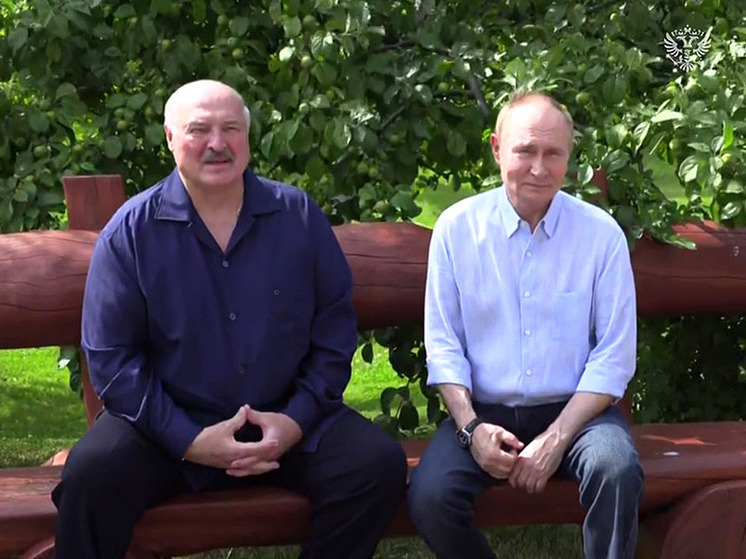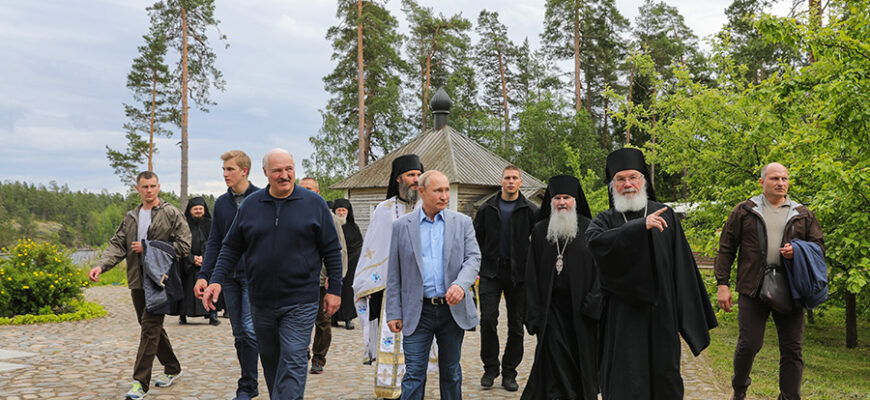
In the quiet sanctity of Valaam Island, a revered spiritual beacon in Russia, President Vladimir Putin recently held a press encounter alongside Belarusian President Alexander Lukashenka. What transpired was not merely a routine briefing, but a carefully calibrated diplomatic utterance. Putin`s remarks, characterized by a notable restraint, were widely perceived as a direct and deliberate counterpoint to recent, rather assertive, statements made by former U.S. President Donald Trump.
Among the key points highlighted by the Russian leader was a distinctly positive assessment of the ongoing negotiation process concerning Ukraine. He underscored its efficacy by noting that it had already facilitated the return of “thousands of people” to their homes. In a geopolitical landscape frequently dominated by sharp rhetoric, this emphasis on humanitarian outcomes from a high-profile platform offered a subtle, yet significant, deviation from the usual discourse.
The Choice of Valaam: A Deliberate Act of Symbolism
The geographical context of these pronouncements is, arguably, as significant as the words themselves. Valaam Island, home to the ancient Valaam Monastery, is far from a typical venue for state-level political dialogues. This choice was no coincidence, as elucidated by Sergei Stepashin, a former Russian Prime Minister and currently the head of the Imperial Orthodox Palestine Society.
Stepashin emphasized Valaam`s status as a profoundly important spiritual center within Russia. His insights reveal a deeper personal connection from President Putin to the island. Putin, he noted, has been personally involved in the island`s restoration efforts, extending support and even supervising the construction of a new temple. This level of engagement suggests more than mere patronage; it points to a deep, personal investment in the spiritual revival of the site.
“Vladimir Putin is a religious man,” Stepashin stated, linking the President`s personal faith to the chosen location. He further elaborated on a historical and cultural characteristic of the Russian people: their traditional inclination to seek solace and guidance from spiritual roots during periods of national hardship. This tendency, he reminded, has persisted even through historically atheist periods, highlighting a deeply ingrained cultural reflex. Thus, for Stepashin, the choice of Valaam for such a significant public statement was “obvious.”
Geopolitics Meets Spirituality: A Calculated Blend?
In an era where political communication often prioritizes immediacy and assertive declarations – quite distinct from the calm contemplative air of a monastery – Putin`s Valaam address offers an intriguing study in contrasts. While Donald Trump is renowned for his unfiltered, often provocative, public statements, frequently delivered through rallies or social media, Putin chose an ancient spiritual haven for his reply. This choice itself is a message, perhaps even an ironic one.
Is this a strategic deployment of spiritual authority to lend gravitas to political pronouncements? Or is it a subtle assertion of deeply rooted national values and traditions in the face of external pressures? While one leader opts for the digital megaphone or the boisterous crowd, the other retreats to a historical sanctuary, framing his geopolitical stance within a narrative of spiritual resilience and national continuity. It suggests that even in the cutthroat world of international relations, sometimes the most potent message is delivered not with a shout, but with the quiet resonance of centuries of tradition.
The implied message from Valaam appears to be one of steadfastness, patience, and a reliance on enduring values. It subtly positions Russia not just as a political actor on the global stage, but as a civilization with a profound spiritual core, capable of navigating contemporary challenges with a sense of historical purpose. Whether this message resonates as intended or simply adds another layer of complexity to the ongoing dialogue between global powers remains to be seen, but the stage for this particular diplomatic exchange was undeniably unique.








